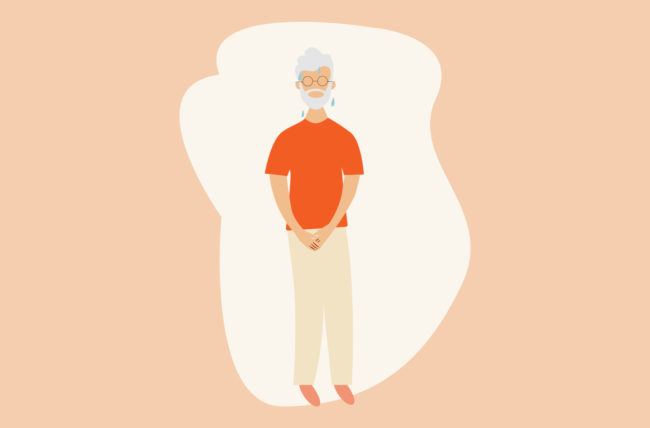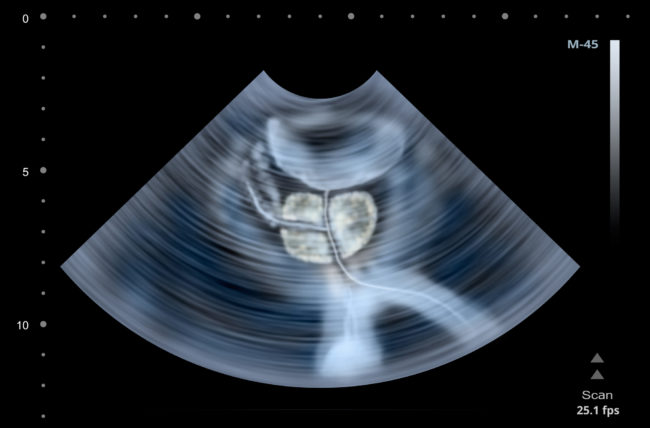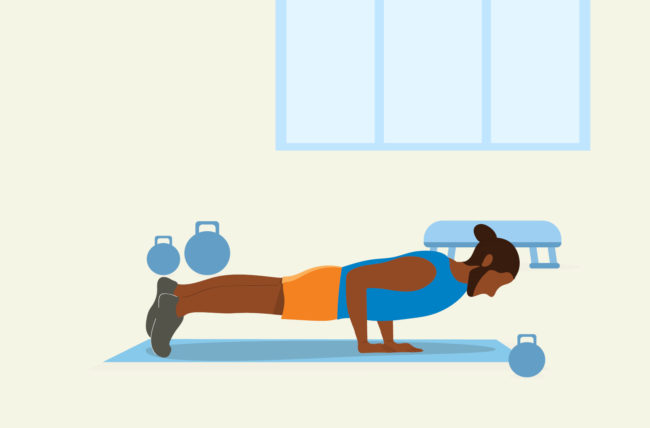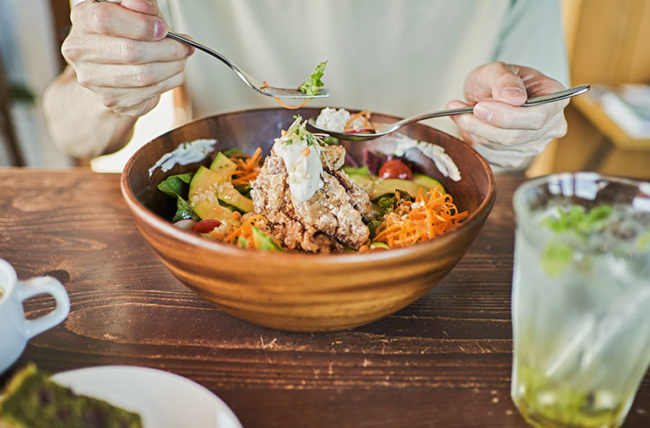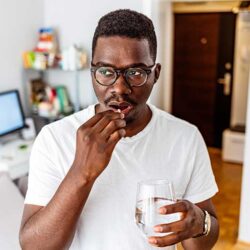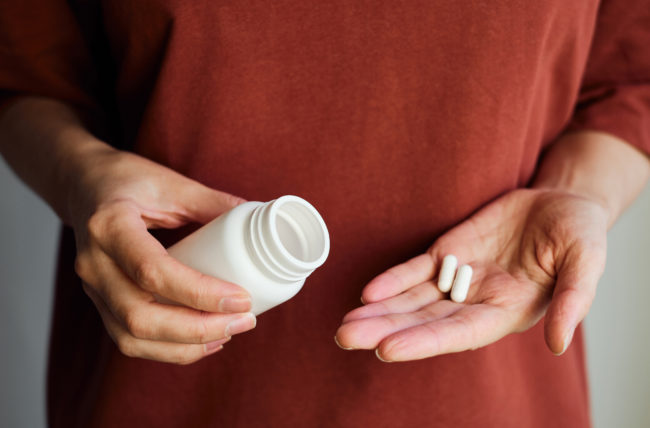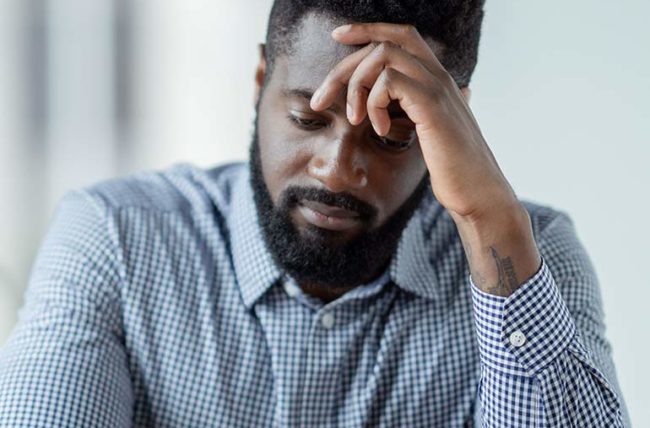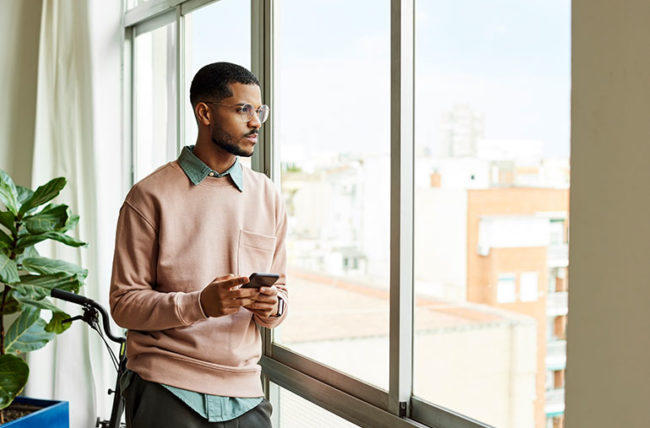You take going to the toilet for granted, until you suddenly can’t. Men and those born male often have difficulty peeing. This is especially true as they reach their 50s.
Urologist Brad Gill MD, MS advises that you shouldn’t ignore the problem. You can deal with the problem so you can get back to your normal life.
Let’s talk about peeing issues.
Prostate problems
The most common reason for men to have difficulty urinating is an enlarged prostate. The prostate gland is located directly below the bladder. The bladder sends urine through a canal that runs through the prostate, to the urethra where it leaves the body.
The prostate grows larger as men age. This has serious consequences. “This growth squeezes out the channel in the prostate making it narrower and harder to pass urine through,” says Dr. Gill. It’s a gradual change that you will notice in the bathroom.
A large prostate can cause a number of symptoms including:
- Weak urine flow
- The urine is pushed out by squeezing the bladder.
- Having trouble getting the stream to flow or having a stream which stops and starts.
- Feeling like you cannot empty your bladder.
- After leaving the bathroom, you may dribble.
- Get up and urinate during the night.
- Inability to urinate.
You’re less likely than usual to empty your bladder when you visit the bathroom if it’s difficult to pee. This can lead to frequent (and frustrating) trips to the bathroom to urinate. It may also result in dribbles or leaks or “accidents”.
What to do if you have trouble urinating
It is impossible to prevent an enlarged prostrate. It’s a natural occurrence. If you have urinary symptoms there are many options that can help restore the flow.
Hydrate with Care
Stay hydrated by drinking fluids. But remember: the more fluid you drink, the more you will have to go, especially if the fluid irritates your bladder. Be smart about the fluids you consume and when. Take, for example:
- Reduce your fluid intake at night, especially if it’s causing you to walk to the toilet in the early hours of the morning. It is recommended that people consume less than one glass of water at night or after dinner.
- Avoid artificial coloring and sweeteners, as they can irritate the bladder.
- Due to the caffeine in these drinks, limit your coffee, tea, and soda intake. Caffeine is diuretic, which means it will make you pee more.
- Watch your alcohol intake. Alcohol, beer and wine are diuretics and bladder irritants, which can cause you to pee more and produce more urine.
Do not hold it
Regularly use the bathroom throughout the day. Dr. Gill says, “Go when you need to.” Dr. Gill says, “Don’t wait because your bladder isn’t as patient as when you were younger.”
Your bladder should generally be emptied about every two to three hour — a pace that is rarely encouraged. “From an early age, the society teaches you to hold your urine,” says Dr. Gill. Imagine your grade school teacher telling you that it wasn’t time to go to the bathroom yet.
Double void:
Double voiding may be right for you if you don’t feel you can completely empty your bladder.
Dr. Gill advises, “After you’ve finished going to the toilet, wait 30 seconds or a minute before trying to squeeze out some more.” This can help you empty your bladder completely and give yourself more time between visits.
Think of your bladder as a bucket underneath a leaking pipe. If you only empty the half, you will need to empty twice as frequently to prevent it from overflowing.
Check your bedtime routine
Emptying out the bladder before you go to sleep will make it take longer for the bladder to fill up (and reach capacity) while you’re in bed. If you empty your bladder before going to bed, it will take longer for the bladder to reach its capacity.
If you urinate frequently at night — three or more times — then you might have sleep apnea.
Sleep Apnea, often associated with snoring is a condition in which breathing can stop. It can cause you to awaken frequently and produce more urine. This can lead to a habit of getting up and going to the toilet every time you wake up.
Skip the Supplements
In the past, some herbs and nutritional products were marketed to promote prostate health. However, has raised doubts as to their true effectiveness. Supplements can even cause prostate problems in some cases.
Bottom line? You won’t find a “magic drug” to improve prostate health on the shelves of vitamins and supplements. There are some medications that can help.
The No. The No.
These tips may help you to manage your stream problems, but they are not a substitute for what actually needs to be done. “If you have bothersome symptoms, consult a urologist,” says Dr. Gill. Don’t ignore it.
After all, it can be much more than a simple inconvenience. This can have a negative impact on your health, or even be a sign that you may have a more serious medical condition.
Dr. Gill says that a prolonged blockage in the bladder can lead to pressure on the kidneys. This can eventually cause permanent damage. You may also be at greater risk of urinary infections or stones in your urethra.
While an enlarged prostrate is often the cause of urinary problems, it’s certainly not the only one. cancer, as well as various infections and other conditions can also make it difficult to go.
An overactive bladder, and bladder irritations are other common causes of urinary urgency.
Call your doctor immediately if you notice blood in your urine. “Bloody urine is not normal, and should be checked immediately,” says Dr. Gill.
The same applies if you are and unable to urinate.
Treatments of enlarged prostate
The good news is that we are now in the middle of it. There are many treatment options to help relieve your symptoms if you have a growing prostate.
- Medicines: Dr. Gill says that an oral medication would be a good place to begin. The medication is usually taken once a day and has few side effects. If you treat prostate enlargement, the medication will be required for life.
- Minimally Invasive Treatments: Urologists can also treat your problem using minimally invasive procedures, often performed in their office. One method uses steam to shrink your prostate. One method uses a series implants to hold the channel open. Temporary inserts are being tested to help stretch the canal. These treatments can be a good option as they are often low-risk and have few side effects.
- Surgery The most definitive treatment is surgery. The procedure opens the prostate’s channel to relieve symptoms. They remove excess tissue that has built up over time. Some surgeries are performed under anesthesia and can be done as an outpatient procedure. Some surgeries may require an overnight stay in the hospital.
Dr. Gill says that problems urinating shouldn’t be ignored. It’s something that happens every day and should be discussed. Don’t ignore your symptoms. There are a number of things that can go wrong.
Talk to your doctor and we can help you make the right decisions.


